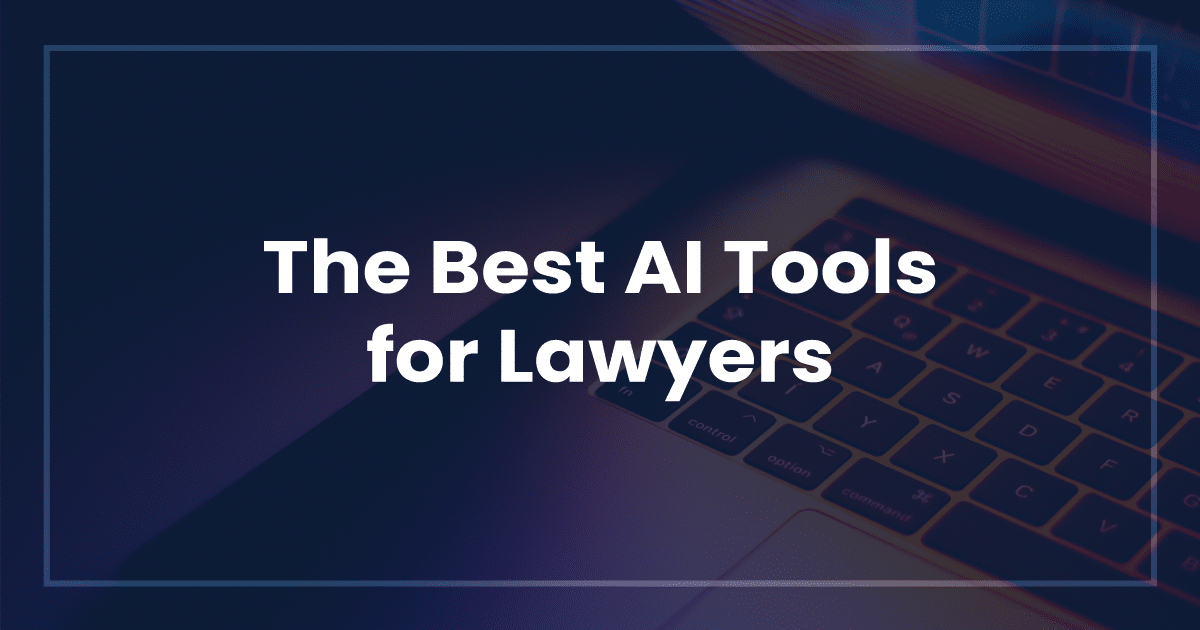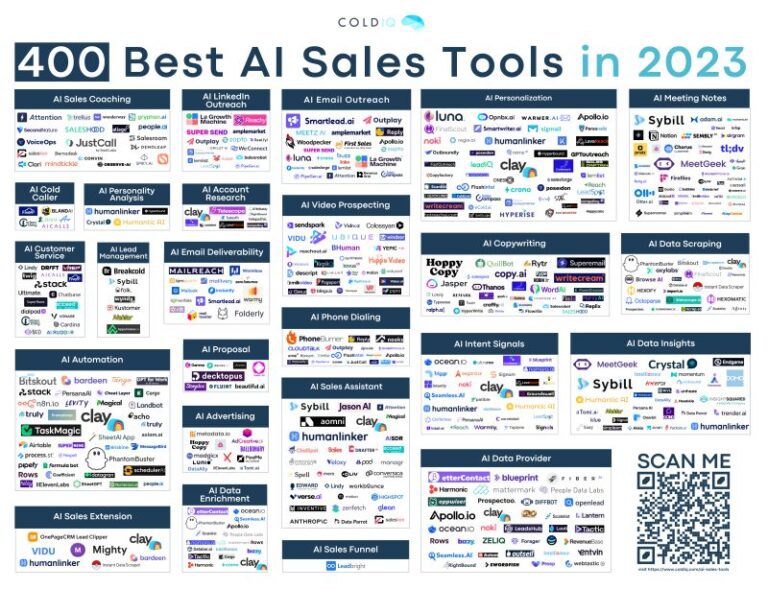Best AI Tools for Lawyers: Revolutionize Your Practice
Top AI tools for lawyers include LegalZoom and Casetext. These platforms streamline legal research, document creation, and case management.
The legal field is rapidly evolving, with technology playing a crucial role in enhancing efficiency and accuracy. AI tools are transforming how lawyers manage their practices, allowing them to focus on strategic tasks rather than routine activities. These technologies can assist with legal research, automate document drafting, and even predict case outcomes based on historical data.
Lawyers who embrace these innovations can improve client service and reduce operational costs. As competition intensifies, utilizing AI tools is essential for staying ahead in the legal industry. Explore the best AI solutions that can optimize your law practice and help you serve your clients better.
The Rise Of AI in The Legal Sector
The legal sector is experiencing a significant shift with the rise of AI. Law firms are adopting these tools to enhance efficiency and accuracy. AI helps lawyers manage large volumes of data quickly. This transformation reshapes how legal services are delivered.
Impact On Traditional Law Practices
AI tools are changing traditional law practices in several ways:
- Document Automation: AI simplifies the creation of legal documents.
- Research Efficiency: AI quickly finds relevant case law and statutes.
- Predictive Analytics: AI forecasts case outcomes based on historical data.
These advancements lead to faster turnaround times. Clients benefit from lower costs and improved services. Lawyers can focus more on strategy and less on mundane tasks.
Advancements In Legal Technology
Recent advancements in legal technology are noteworthy:
| AI Tool | Functionality | Benefits |
|---|---|---|
| Contract Review Software | Analyzes contracts for risks and compliance | Reduces review time significantly |
| Legal Research Platforms | Searches legal databases for relevant cases | Improves research accuracy |
| Case Management Systems | Organizes case files and deadlines | Enhances collaboration among lawyers |
Lawyers can leverage these tools for better service delivery. AI provides insights that were not possible before. This technology is setting new standards in the legal field.

Credit: www.casestatus.com
AI Tools For Legal Research
Legal research can be time-consuming and complex. AI tools help lawyers speed up this process. They provide accurate information quickly. These tools enhance research efficiency and accuracy.
Speeding Up Case Law Searches
AI tools simplify case law searches. They analyze large volumes of data rapidly. Here are some benefits:
- Instant Access: Find cases in seconds.
- Smart Filtering: Narrow results by relevance.
- Keyword Optimization: Use specific terms for better results.
Popular AI tools include:
| Tool | Key Feature |
|---|---|
| LexisNexis | Powerful search algorithms. |
| Westlaw Edge | AI-driven insights and analytics. |
| Ravel Law | Visual case law mapping. |
Ensuring Comprehensive Statute Analysis
AI tools also enhance statute analysis. They provide thorough evaluations of legal texts. This ensures no important details are missed.
Key features include:
- Text Comparison: Compare multiple statutes easily.
- Historical Context: Understand changes over time.
- Summarization: Get concise summaries of complex laws.
Some AI tools for statute analysis are:
- Fastcase – Offers smart statute searching.
- Casetext – Uses AI for detailed analysis.
Document Automation And Management
Document automation and management tools help lawyers save time and reduce errors. These tools streamline tasks like creating, sorting, and retrieving legal documents. They improve efficiency and allow lawyers to focus on more important work.
Streamlining Document Creation
Creating legal documents can be slow and tedious. Document automation tools make this process faster. Here are some key benefits:
- Templates: Use pre-made templates for common documents.
- Custom Fields: Easily input client-specific information.
- Version Control: Keep track of document changes effortlessly.
Popular tools in this area include:
| Tool Name | Key Feature |
|---|---|
| DocuSign | Electronic signatures for quick approvals. |
| HotDocs | Automated document assembly. |
| Lawyaw | Customizable templates for various legal documents. |
Efficient Document Sorting And Retrieval
Finding the right document can take a long time. Efficient sorting and retrieval systems solve this problem. They help lawyers locate documents quickly.
- Tagging: Assign keywords for easy searching.
- Folders: Organize documents by case or client.
- Search Function: Use advanced search features to find documents.
Top tools that enhance document sorting include:
| Tool Name | Key Feature |
|---|---|
| Clio | Integrated document management system. |
| NetDocuments | Cloud-based document storage and retrieval. |
| iManage | Powerful search capabilities for legal documents. |

Credit: lawrank.com
Predictive Analytics In Law
Predictive analytics transforms how lawyers approach cases. It uses data to make educated predictions. This technology helps in understanding potential outcomes and risks. Lawyers can make better decisions based on data-driven insights.
Many firms now rely on predictive analytics tools. These tools analyze past cases and identify patterns. This approach enhances efficiency and effectiveness in legal practice.
Forecasting Case Outcomes
Forecasting case outcomes is crucial for lawyers. It allows them to assess the likelihood of winning a case. This can save time and resources.
| Factors | Impact on Outcome |
|---|---|
| Case Type | Directly affects winning chances |
| Judge’s History | Influences decision-making patterns |
| Juror Demographics | Affects perceptions and biases |
Many tools offer predictions based on these factors. By analyzing data, lawyers can prepare better strategies. They can also adjust their approach based on predicted outcomes.
Risk Assessment For Litigation
Risk assessment is vital in litigation. It helps lawyers identify potential challenges. Understanding risks leads to informed decision-making.
- Financial Risks: Consider the costs of litigation.
- Reputation Risks: Assess the impact on public image.
- Legal Risks: Understand potential legal consequences.
Tools for risk assessment analyze various data points. They provide insights into possible risks in a case. This helps lawyers prepare for unexpected scenarios.
Lawyers can use predictive analytics to mitigate risks. They can strategize better and focus on winning. Investing in these tools is essential for modern legal practice.
Ai For Contract Review And Analysis
AI tools have transformed how lawyers handle contract review and analysis. These tools save time, reduce errors, and enhance accuracy. They help lawyers focus on strategic tasks rather than mundane details.
Automating Contract Scrutiny
Automating contract scrutiny streamlines the review process. AI tools quickly analyze large volumes of contracts. They highlight key clauses and terms for review.
- Speed: AI tools process contracts in minutes.
- Accuracy: Reduce human error in contract analysis.
- Consistency: Maintain uniform standards in contract reviews.
Some popular AI tools for contract scrutiny include:
| Tool Name | Features |
|---|---|
| LawGeex | Automated contract review and approval workflow. |
| Kira Systems | Machine learning for contract analysis and data extraction. |
| Evisort | AI-powered contract management and analytics. |
Identifying Potential Contractual Risks
AI tools excel at identifying potential contractual risks. They analyze language and flag unusual clauses. This helps lawyers mitigate risks early.
- Risk Assessment: AI evaluates contracts for hidden risks.
- Alerts: Get notified about problematic clauses.
- Insights: Gain data-driven insights for better decision-making.
Some key features to look for in AI tools:
- Risk scoring for each contract.
- Customization options for specific industries.
- Integration with existing law practice software.
AI tools make contract review easier and safer. They help lawyers manage risks effectively.
Client Interaction And Relationship Management
Client interaction is crucial for lawyers. Effective communication builds strong relationships. AI tools enhance this process significantly. They help lawyers engage clients better and manage relationships efficiently.
Enhancing Client Engagement With Ai
AI tools transform how lawyers connect with clients. They make communication faster and more effective. Here are some key benefits:
- 24/7 Availability: AI chatbots provide round-the-clock support.
- Instant Responses: Quick replies to common questions.
- Data Analysis: Understanding client needs through data.
These features boost client satisfaction. They help lawyers focus on complex tasks.
Personalizing Client Communication
Personalization is essential in client communication. AI tools can tailor messages based on client preferences. Here’s how:
- Customized Emails: Send personalized email campaigns.
- Client Profiles: Create profiles to track preferences.
- Follow-ups: Automated reminders for important dates.
Using AI for personalization builds trust. Clients feel valued and understood.
| AI Tool | Features | Benefits |
|---|---|---|
| Chatbot Solutions | 24/7 availability, instant replies | Improved client engagement |
| Email Automation | Personalized campaigns, follow-ups | Enhanced communication |
| Data Analytics | Client insights, behavior tracking | Better understanding of client needs |
AI tools streamline client interactions. They allow lawyers to focus on core responsibilities.
Ethical Considerations And Compliance
AI tools can transform legal practice. Yet, they raise important ethical questions. Lawyers must ensure compliance with ethical standards. This section discusses key ethical considerations.
Maintaining Legal Ethical Standards
Lawyers must adhere to strict ethical guidelines. Using AI tools requires diligence. Important aspects include:
- Confidentiality: Protect client information.
- Competence: Ensure understanding of AI tools.
- Transparency: Explain AI’s role to clients.
Regular training on AI ethics is essential. This ensures that lawyers stay updated on best practices. Ethical lapses can harm a lawyer’s reputation.
Navigating Data Privacy And Security
Data privacy is crucial in legal work. AI tools often handle sensitive information. Protecting this data is a must. Key considerations include:
| Aspect | Recommendation |
|---|---|
| Data Encryption | Use encryption for all client data. |
| Access Control | Limit access to authorized personnel. |
| Regular Audits | Conduct audits to identify vulnerabilities. |
Compliance with data protection laws is vital. Familiarity with regulations like GDPR is necessary. Lawyers must safeguard client trust through robust security measures.
Integrating AI Tools Into Your Practice
Integrating AI tools into your legal practice can transform operations. These tools enhance efficiency and improve client service. Understanding how to implement them is crucial for success.
Training Staff For AI Adoption
Effective training is vital for successful AI integration. Staff must understand how to use these tools. Here are key training strategies:
- Workshops: Conduct hands-on training sessions.
- Online Courses: Offer e-learning modules on AI tools.
- Mentorship: Pair experienced users with novices.
Consider creating a dedicated team for ongoing support. This team can address questions and troubleshoot issues. Regular updates and refresher courses keep the knowledge fresh.
Measuring The Roi Of Ai Investments
Measuring return on investment (ROI) for AI tools is essential. Tracking ROI helps justify expenses. Here are steps to evaluate the effectiveness:
- Set Clear Goals: Define what you aim to achieve with AI.
- Monitor Performance: Track metrics like time saved and increased productivity.
- Calculate Costs: Include both direct and indirect expenses.
- Analyze Client Feedback: Gather client satisfaction surveys.
Use the following table to visualize key metrics:
| Metric | Before AI | After AI |
|---|---|---|
| Hours Spent on Research | 20 | 10 |
| Client Satisfaction Score | 75% | 90% |
| Cost of Operations | $5,000 | $3,500 |
Regular assessments ensure your AI tools deliver value. This way, you can make informed decisions about future investments.
Future Of AI in Legal Practices
The future of AI in legal practices looks promising and transformative. AI tools are changing how lawyers work. They help improve efficiency, accuracy, and client satisfaction. Law firms are beginning to realize the potential of AI technologies.
Emerging Trends In Legal Ai
Several trends are shaping the future of AI in law:
- Document Automation: AI tools can draft contracts and legal documents quickly.
- Predictive Analytics: AI analyzes past cases to forecast outcomes.
- Legal Research: AI speeds up research by finding relevant cases efficiently.
- Chatbots: AI-driven chatbots provide instant responses to client inquiries.
- Compliance Monitoring: AI tracks changes in laws to ensure firms stay compliant.
| Trend | Description |
|---|---|
| Document Automation | Drafts legal documents quickly and accurately. |
| Predictive Analytics | Analyzes data to predict case outcomes. |
| Legal Research | Finds relevant cases faster than traditional methods. |
| Chatbots | Provides immediate responses to clients. |
| Compliance Monitoring | Ensures adherence to legal changes. |
Preparing For The Future Of Law
Lawyers and firms must adapt to thrive in this new environment. Here are the steps to prepare:
- Invest in Training: Educate staff on AI tools and technologies.
- Stay Updated: Follow legal tech trends and innovations.
- Evaluate Tools: Assess which AI tools fit your practice best.
- Embrace Change: Foster a culture that welcomes technology.
- Client Education: Inform clients about the benefits of AI in legal services.
By taking these steps, law firms can leverage AI for success.

Credit: blog.texasbarpractice.com
Frequently Asked Questions
What Are The Top AI Tools for Lawyers?
Some of the best AI tools for lawyers include LegalZoom, ROSS Intelligence, and Casetext. These platforms help with legal research, document automation, and case analysis. They streamline tasks, improve efficiency, and enhance decision-making, ultimately saving valuable time for legal professionals.
How Can AI Improve Legal Research?
AI can significantly enhance legal research by providing faster access to relevant case law and statutes. Tools like ROSS Intelligence utilize natural language processing to deliver precise results. This reduces the time lawyers spend sifting through data, allowing them to focus on case strategy and client needs.
Are AI Tools Reliable For Legal Work?
Yes, AI tools are becoming increasingly reliable in legal work. They are designed to analyze vast amounts of data accurately. However, lawyers should use them as aids, not replacements. Human oversight is crucial to ensure accuracy and ethical compliance in legal matters.
What Is The Cost Of AI Tools For Lawyers?
The cost of AI tools varies widely based on features and subscription models. Some basic tools may start at a few hundred dollars annually. More comprehensive platforms can cost thousands. It’s essential for lawyers to evaluate their needs and choose tools that offer the best return on investment.
Conclusion
Embracing AI tools can significantly enhance a lawyer’s efficiency and accuracy. From document review to case management, these technologies streamline processes and reduce workload. Investing in the right AI solutions not only saves time but also improves client satisfaction. Explore these tools to stay competitive in the evolving legal landscape.





